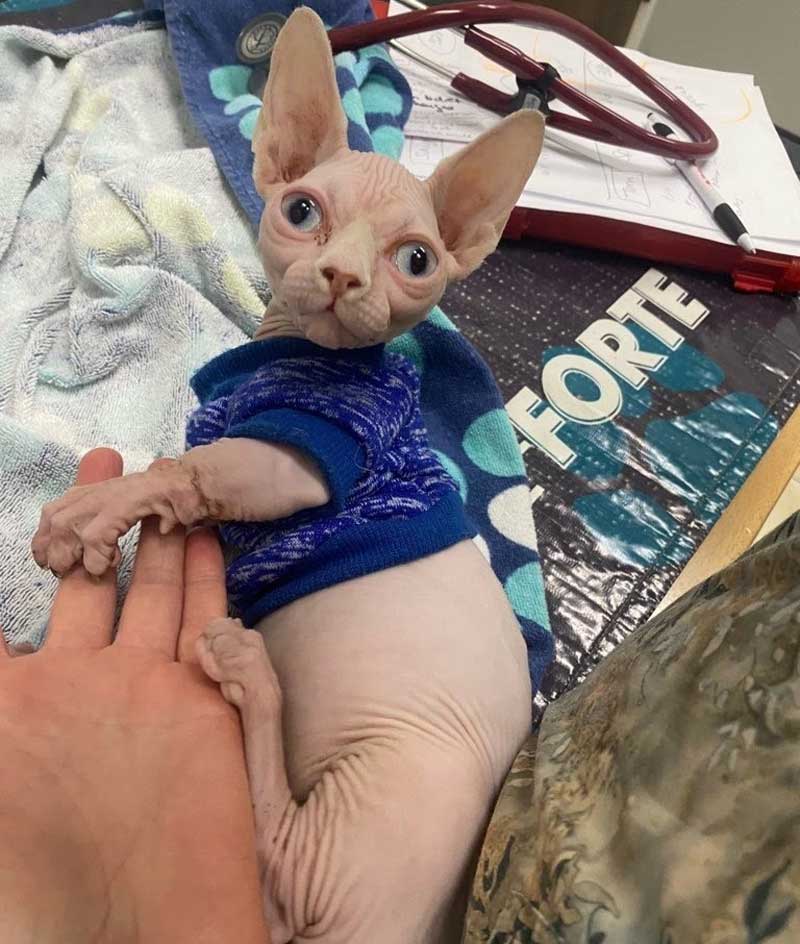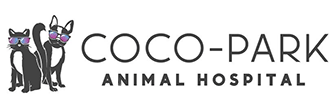FAQs
Answers to some of your most common questions:
How should I prepare for my pet's wellness appointment?
A wellness exam is a standard procedure that we conduct but it is up to you to keep watch and make notes about your pet’s health and behavior. Our comprehensive full body examination of your pet will help ensure optimal health. Please come to us with anything that you notice or any questions that you may have. It is also helpful if you are able to bring a fresh fecal sample for us to analyze.
My cat is difficult to get to the vet. What can I do to improve this?
We understand that some cats can be a challenge to get to the vet, you are not alone! Please see the following resource links below for more information. We also offer a product called Feliway, which helps calm cats, and we have a dedicated “Cat Parking” zone to place your carrier on once you arrive. This is located at the end of the reception desk, near the hall to the exam rooms (high up off the ground and as far away from barking dogs as possible to help keep your kitty calm).
How often do you recommend performing blood work on my pets?
In addition to having wellness exams for your pet, we also recommend performing blood tests at least yearly, semi-annually in geriatric patients, or sometimes more frequently in those with internal medical problems. Recommendations are tailored to your pet’s individual needs. The bloodwork tests can be seen as the “internal physical exam,” and checks your pet’s kidneys, liver, blood sugar, blood protein levels, pancreas, electrolytes, thyroid, white blood cells, red blood cells, platelets, and urine!! In cats, our wellness blood tests also include feline leukemia, feline AIDS, and heartworm antibody testing.
What is the process for having my pet spayed or neutered?
Spaying or neutering can be done ideally at five months of age. Your pet is given an exam prior to surgery to help determine if they are healthy enough to undergo the surgical procedure and to check for any other issues that might need surgical correction. Current vaccinations are required at the time of surgery.
Within 7 days of the scheduled surgery, your pet will need pre-anesthetic testing. The pre-anesthesia tests that are best for your pet will be discussed at the time of the pre-surgical exam with the doctor. Which pre-anesthesia tests your pet needs are individualized based on age and concurrent health conditions. Our nurses will minimally draw blood for a pre-anesthetic blood screen. This includes a white blood cell, platelet, and red blood cell level check (CBC), a general chemistry panel that looks at the liver, kidneys, blood sugar, and electrolyte level. Additional pre-anesthesia tests could include: EKG, Chest x-rays, additional or specific blood tests, and cardiology or radiology consults. The doctor evaluates the results and calls you to to discuss them to make sure everything is as safe as possible for the day of the procedure.
On the day of the procedure, you will drop off between 7:45-8:15am for the procedure. Remember, no food after 10pm, or water after midnight. We will have you fill out release forms prior to surgery, so be sure to schedule a few extra minutes of your time to do so. Prior to undergoing anesthesia, we will administer a “Cerenia” injection. This anti-nausea medication given prior to surgery has been shown to resolve and prevent nausea and vomiting associated with anesthetic procedures. It also allows patients to return to normal feeding more quickly after the procedure, and animals receiving this injection prior to anesthesia also ate more volume afterward. Nutrition is extremely important for healing, and no one likes to vomit at any time, so we provide this service as the best medicine for your loved one.
Once induced (put under full anesthesia), we place an endotracheal tube to maintain the airway, and your pet is monitored extensively with our multiparameter anesthesia monitor. We monitor oxygenation level, heart rate, ECG, blood pressure, temperature, and carbon dioxide levels. We also use a ventilator to assist with regular respiration to make sure your pet has the most controlled and safe anesthesia delivery possible. Lastly, during anesthesia pets can easily become cold, so we also closely monitor temperature and provide warmth throughout the procedure using a state-of-the-art warm air blanket device that is very safe. Rest assured our veterinary nurse-anesthetist will be taking the best care of your pet!
Once the procedure is over, we will provide a post-operative pain injection. Once your pet is awake and recovered from the anesthesia, we will call or text you immediately to let you know how everything went! Usually, at this time we also schedule a time for you to pick-up later that afternoon.
We will also provide post-surgical laser therapy to speed healing and decrease pain should you elect this option. When you come to pick-up, the doctor will meet with you to discuss the discharge instructions, medications, and things to watch out for at home. At this time you may ask any questions you need to be answered in a one-on-one consultation with the doctor. We do our best to keep you as informed as possible to make a successful recovery as easy as possible!!
How long do the sutures stay in after my pet’s surgery?
Procedures involving sutures (stitches) require them to be removed about 10-14 days following the surgery. For spays and neuters, the sutures will actually be in the skin (intradermal), so they will absorb and won’t require removal. It is important, however, to still schedule a follow-up for the doctor to make sure the wound has healed at the 10-14 day mark.
How often does my pet need to have their teeth cleaned? Is there anything I should be doing at home?
We will examine your pet’s teeth during their wellness exam to determine the best schedule for your pet. Just like people, individual pets develop tartar and oral disease at different rates. Many large dogs can go for one to three years without a cleaning. However, most smaller breeds need a professional cleaning every six to twelve months as they are prone to more severe dental disease including periodontal disease which can cause loose, painful teeth and deep-seated infections that can’t be seen from the outside. Brushing your pet’s teeth at home is the best preventative measure you can take to minimize how often your pet will need its teeth professionally cleaned. Ideally brushing would be done daily. If brushing isn’t a reality because your pet doesn’t allow you to, or because your schedule is too hectic, please ask us about Oravet chews, which are a new, effective way of maintaining your pet’s dental health instead of brushing.
Can my pet catch a cold or flu?
Although your pet can catch strep throat, he can’t catch a cold or the flu from you. That does not mean your pet can’t have an upper respiratory infection or intestinal disruptions. Coughing, sneezing, vomiting and/or diarrhea can all be debilitating for your pet and we recommend setting up an appointment with the doctor if your pet is suffering from these symptoms.
How can I make payments? What about Pet Insurance?
Payment is required at the time of service. We gladly accept cash, checks, Discover, VISA, Mastercard, American Express, and Care Credit! We also accept and highly recommend pet insurance. We even can have it set up on a pre-approval basis where the insurance company reimburses the hospital for very costly procedures. We recommend Trupanion Insurance, but there are many products available on the market. Choosing the best pet insurance can be tricky, so be sure to do your research and understand what you are buying. Make sure you ask if the company can drop you or not. During a wellness visit at our hospital, we can provide you with a complimentary 30-day trial of Trupanion Pet Insurance so you are covered while you do your research. This trial automatically inactivates if you do not sign up, requiring any action on your part to cancel. Please call our office for more information, or visit trupanion.com for more information.
Do you allow urgent or same-day appointments?
We will absolutely do our best to accommodate urgent and same-day appointments, typically there is an increased office exam fee for urgent overbook (meaning we are squeezing you into an already booked appointment book), after-hours or outside of regular appointment hours, or emergency exams. Please call our office and speak with one of our staff for more information.
How do I choose a veterinarian?
When you are looking for a veterinarian, make sure you choose a doctor that makes you and your pet feel comfortable and safe and is someone that you can trust. It is important that you also find a supportive, calm and caring environment that both you and your pet are comfortable with. Also, choosing an animal hospital that has additional in-house services can make your pet’s health care more convenient for you over time.
As you look around for the best veterinarian service, we want to exceed your expectations regarding high-quality service to you and your pet. We are committed to consistently offering you quality pet health care combined with compassion and respect for animals at a price that is affordable. You can be confident knowing your pet is in good hands as we work closely with you to provide the best professional medical attention available.

